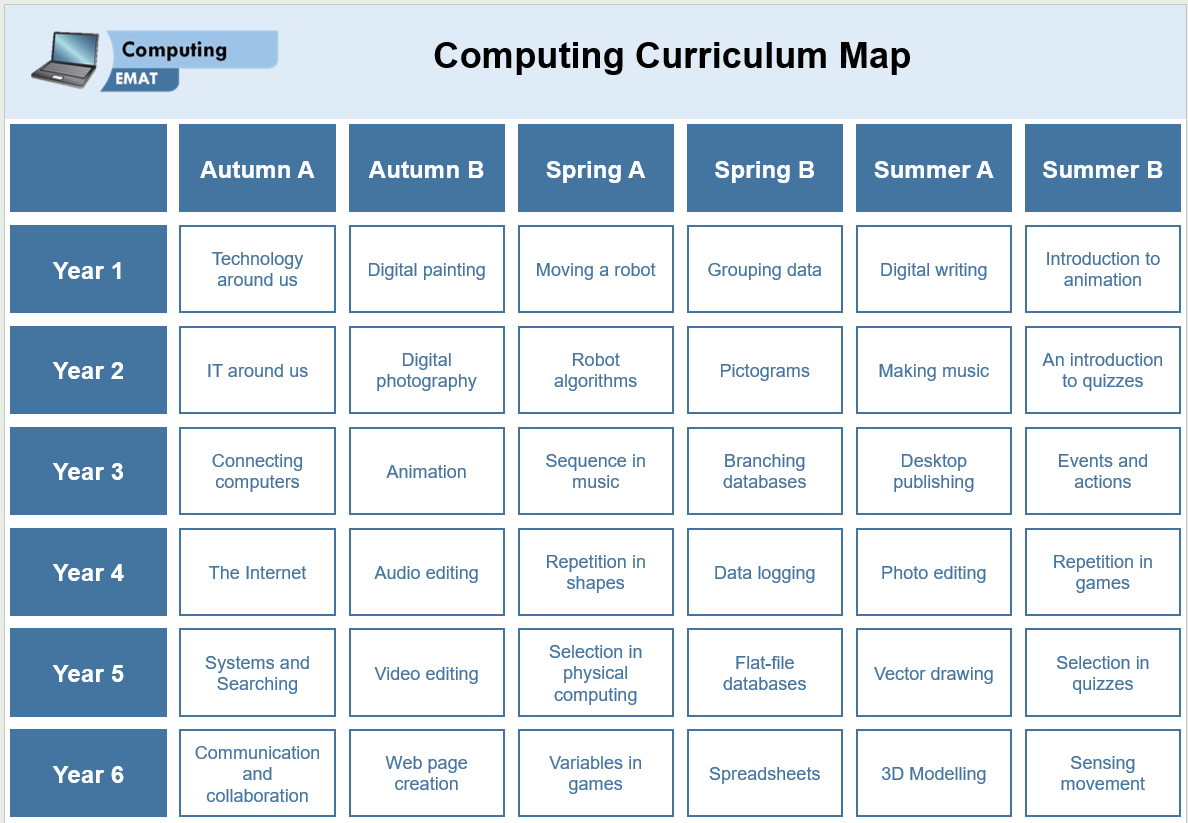Computing at Upwell Academy
At Upwell Academy, we follow the Teach Computing scheme of work, developed in collaboration with the National Centre for Computing Education (NCCE). This ensures full coverage of the National Curriculum and provides a structured, progressive approach to computing education.
Online Safety is a priority and is embedded throughout the year in computing lessons, assemblies, and PSHE sessions. We also share regular updates and guidance with parents to support safe and responsible technology use at home.
Our aim is to equip children with the knowledge and skills to use technology effectively in everyday life. Through a hands-on and practical approach, pupils develop fluency and independence in using digital tools. We recognise that children’s computing abilities vary widely, often influenced by their access to technology outside of school. To support all learners, we encourage both independent and collaborative learning, allowing children to benefit from each other’s experiences.
E-Safety is a core component of our computing curriculum, ensuring that children understand how to use technology safely, respectfully, and responsibly.
Computing Across the Curriculum
Computing is an integral part of our Early Years Foundation Stage (EYFS) curriculum, where children are introduced to key concepts and vocabulary. As pupils progress, computing is taught both discretely and across other subjects, allowing for meaningful cross-curricular connections.
From the end of Key Stage 1, computing lessons are delivered in the classroom, building on prior learning and enabling children to apply their skills in increasingly complex ways. Pupils have access to a wide range of hardware, including laptops, iPads, printers, interactive whiteboards, cameras, headphones, microphones, and Bee-Bots. They also use various software tools, such as word processors, presentation software, drawing programs, spreadsheets, and educational apps.
Enrichment Opportunities
Children at Upwell Academy also use technology in assemblies, clubs, therapies, and intervention sessions, enriching their learning and supporting personal development.
Inclusion and SEND
We are committed to delivering a broad and balanced computing curriculum for all children, including those with Special Educational Needs and Disabilities (SEND). For many pupils, technology provides a vital means of communication and self-expression, and can be a source of high engagement and motivation.
Technology can also support children’s social, emotional, and mental health (SEMH) by boosting confidence and enabling them to share their knowledge with others. Where needed, teachers provide differentiated activities to ensure that all pupils, including those with Education, Health and Care Plans (EHCPs), can access the curriculum at an appropriate level.

